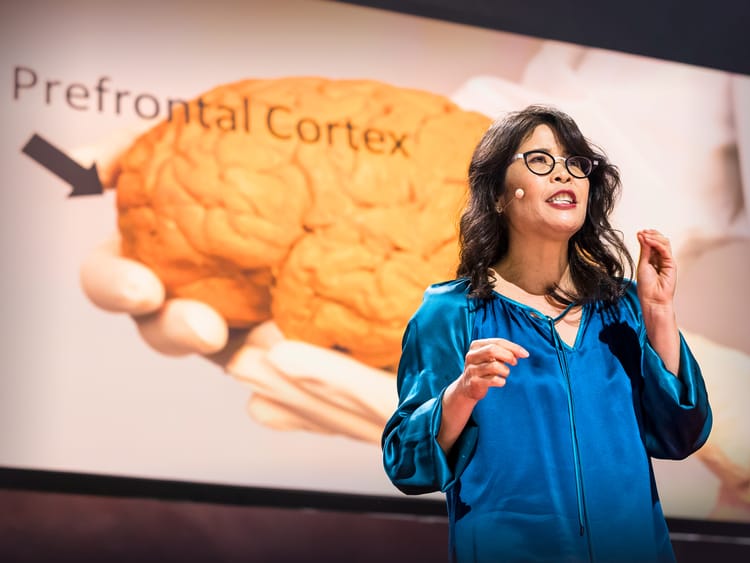“The Brain-Changing Benefits of Exercise” by Wendy Suzuki
• public
Table of contents
Suzuki explains the scientific evidence supporting the positive effects of exercise on the brain, revealing how physical activity can enhance memory, cognition, and overall mental well-being.
For Key Ideas, Questions and Quotes from this talk, you can scroll below.
Wendy Suzuki gave this speech at the TED Conference. All rights to the speech and the video above belong to TED.
About Wendy Suzuki
Wendy Suzuki is a Professor of Neuroscience and Psychology at the New York University Center for Neural Science and popular science communicator. She is the author of Healthy Brain, Happy Life: A Personal Program to Activate Your Brain and Do Everything Better. (Source: Wikipedia)
Key Ideas From Talk
When I was younger, I wasn't really into sports. Between attending a science high school and a technical university, I spent more time on mental activities than physical. As a result, I wasn't happy with my physical appearance in my early twenties. That's when I decided to start doing sports, and I've been doing it regularly ever since. It's become an essential part of my identity.
I'm planning to write an article about the benefits I've gained from sports over the years. However, my observations are purely personal. Wendy Suzuki, on the other hand, explains the benefits of sports with scientific data and research. She shares not only the physical benefits of sports but also the effects on our brains.
We all know that sports are good for us, but listening to Wendy's speech reinforces this knowledge. I highly recommend it to anyone who wants to increase their awareness of sports. Here are the ideas that I found most appealing:
- Exercise has immediate and long-term effects on the brain: Physical exercise has immediate effects on the brain, such as improved mood and focus. Long-term exercise leads to structural and functional changes in the brain, including increased neuroplasticity and the growth of new neurons.
- Exercise improves cognitive functions: Regular exercise enhances various cognitive functions, including attention, memory, and executive function. It can also reduce the risk of cognitive decline and neurodegenerative diseases like Alzheimer's.
- Exercise boosts mood and mental health: Physical activity releases endorphins, which are natural mood-boosting chemicals. Regular exercise has been shown to alleviate symptoms of depression and anxiety, improve self-esteem, and enhance overall mental well-being.
- Exercise enhances learning and academic performance: Exercise promotes a conducive environment for learning by increasing blood flow and oxygen to the brain, which improves concentration and information retention. Students who engage in physical activity often show better academic performance.
- Exercise can be tailored for maximum brain benefits: Different types of exercise have varying effects on the brain. Aerobic exercises, such as running or swimming, have been particularly linked to cognitive benefits. Adding variety and challenging oneself with new activities can also enhance brain health.
Questions to Ask Ourselves
- How often do I exercise, and do I realize the immediate and long-term benefits it has on my brain and mental well-being?
- Have I noticed any improvements in my memory, focus, or problem-solving abilities after engaging in physical activity?
- How does exercise affect my mood and overall mental health? Do I feel happier or less stressed after a workout?
- In what ways can exercise support my learning, mental performance? Have I noticed any changes in my productivity or creativity when I incorporate physical activity into my routine?
- Am I open to trying different types of exercise and adding variety to my workouts to maximize the positive effects on my brain?
- What are the challenges or barriers that prevent me from exercising regularly, and how can I overcome them?
- How can I make exercise a more enjoyable and sustainable part of my daily life?
- What specific goals can I set to prioritize and increase my physical activity levels, knowing that it will positively impact my brain and overall well-being?
Notes From Talk
Related List and Guide
This talk is a part of following list: "Talks That Changed My Perspective".
